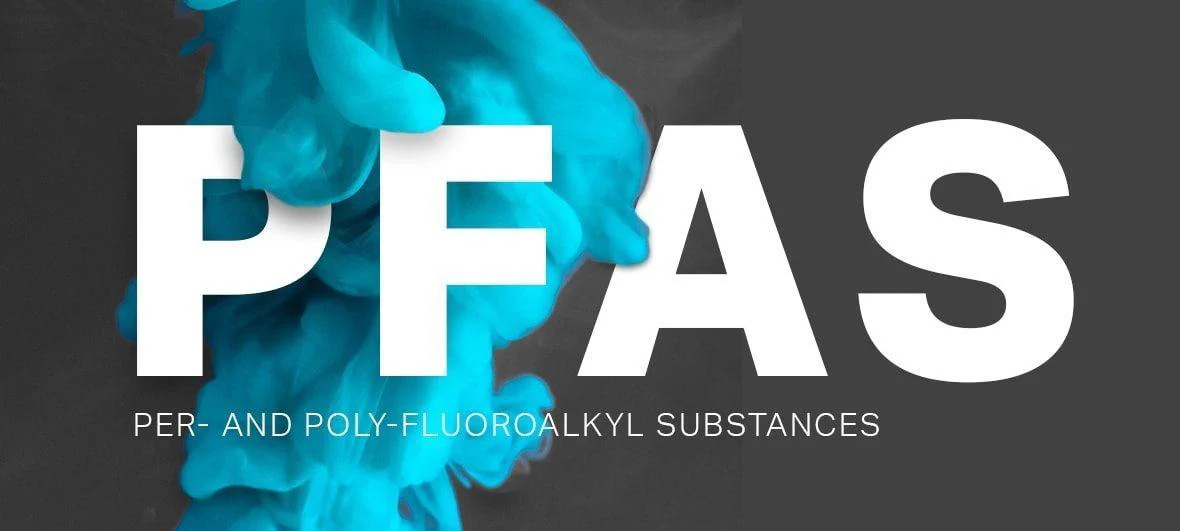PFAS: The Forever Debate
WisBiz Green Blog
PFAS: The Forever Debate
By Gregg Hoffmann
PFAS are known as the “forever chemicals”. In Wisconsin, they could also be termed the “forever debate.”
Gov. Evers and state legislatures debated them again last week, when the governor announced new comprehensive plans from his upcoming 2025-27 Executive Budget to combat per- and polyfluoroalkyl substances (PFAS) contamination statewide. He also vowed to protect kids and families from harmful water contaminants in 2025 the Year of the Kid, and expand access to clean and safe drinking water for Wisconsinites across the state.
That all sounds pretty good, but it will cost over $145 million to address PFAS contamination across Wisconsin, from private well owners to municipalities and across surface, drinking, and groundwater.
Republicans started picking the proposal apart hours after Evers’ announcement. GOP Sen. Eric Wimberger suggested the budget proposal is a “concession to Republican lawmakers”, but said he still has concerns about language to protect innocent landowners.
Wimberger said Evers’ proposal is “an admission of what I’ve been saying for years: we can’t just write the DNR a check for $125 million to fight this problem.” Wimberger, of Green Bay, co-authored SB 312 last session, which laid out how to spend the $125 million.
Republicans have argued it includes important protections for innocent landowners, but Evers vetoed it last session over provisions limiting DNR’s authority to regulate PFAS. The Joint Finance Committee has rejected Evers’ calls to release the money directly to DNR.
Evers’ latest announcement says his clean water proposal will include measures to protect innocent landowners, such as farmers who unknowingly spread PFAS-containing biosolids on their land, along with $7 million to help innocent landowners and farmers clean up PFAS contamination.
Wimberger countered, “I’ve been waiting for months for the Governor to clarify his definition of an ‘innocent landowner,’ and he has refused to respond to my requests. This delay is holding up meaningful solutions to PFAS problems affecting communities across our state. I find myself sitting at the table waiting to have a meaningful conversation on how we can pass a bill to fight PFAS in Wisconsin, and I hope the Governor will join us there soon.”
Some third party interested parties have said Republicans want to let PFAS polluters “off the hook.” Midwest Environmental Advocates attorney Rob Lee said in a statement on the innocent landowner measures in Evers’ plan: “In principle, we would support a narrow exemption that protects farmers, as long as it is paired with adequate funding to remediate contamination resulting from the spreading of contaminated biosolids.
“Ideally, PFAS polluters would bear the costs of remediation, unlike previous proposals from the legislature, which would have let PFAS polluters off the hook,” Lee added.
The $145 million includes:
** Creating a PFAS Community Grant Program to assist municipal drinking water systems with testing for and eliminating PFAS from drinking water through the Safe Drinking Water Loan Program;
** Helping private well owners sample and test their private wells through a new County PFAS Well Testing Grant Program;
** Researching effective destruction and disposal methods of PFAS and implementing proven strategies to dispose and eliminate PFAS;
** Providing grants to local businesses and communities to help reduce or eliminate their use or release of PFAS into the environment;
** Provide nearly $2 million in emergency resources to help provide safe, bottled water to households and communities impacted by water contamination;
** Protect innocent landowners like farmers who unknowingly spread biosolids containing PFAS on their land from having to foot the bill for the clean up.
Several other measures also are included. One of those is the exempting the DNR rulemaking relating to setting enforceable PFAS standards from the so-called “REINS Act.”
In December 2023, Evers announced the cost of implementing DNR proposed standards for limiting per- and poly-fluoroalkyl substances (PFAS) contamination in groundwater would violate the Wisconsin REINS Act. The Act, a 2017 law that former Gov. Scott Walker (R) signed, requires lawmakers to authorize administrative rules with compliance and implementation costs of $10 million or more over two years. Wisconsin lawmakers modeled the REINS Act on a proposed federal law of the same name. It gives legislators the authority to halt the initial enactment of certain administrative regulations.
The Act has stalled progress on strengthening Wisconsin’s water standards for years. Republican majorities in the Assembly and House twice passed bills in ‘23-24 that would continue REINS.
Democratic lawmakers introduced an alternative bill on March 1 that would limit legislative oversight of PFAS standards and exempt PFAS-related regulations from the Wisconsin REINS Act.
The debate over REINS likely will continue when Evers proposed budget is debated.
With the Trump Administration doing everything it can to weaken environmental rules and institutions on the federal level, Republicans, even on the state level, could be emboldened to follow suit. Evers certainly has been bold in the PFAS and other water and environment proposals in his budget, which will be formally introduced on Feb. 18.
At least 29 states are expected to consider policies in 2025 to address PFAS contamination, according to an analysis from an alliance of environmental organizations. Some include banning PFAS in products, identifying safer alternatives, and setting drinking water limits for PFAS. Such expectations around states addressing PFAS contamination comes amid fears the Trump administration will further roll back Biden-era regulations, including the drinking water.
Failure to pass many of the proposals in the Evers budget, or at least reach effective compromises, will only perpetuate the “forever debate” in Wisconsin over the harmful “forever chemicals.”




